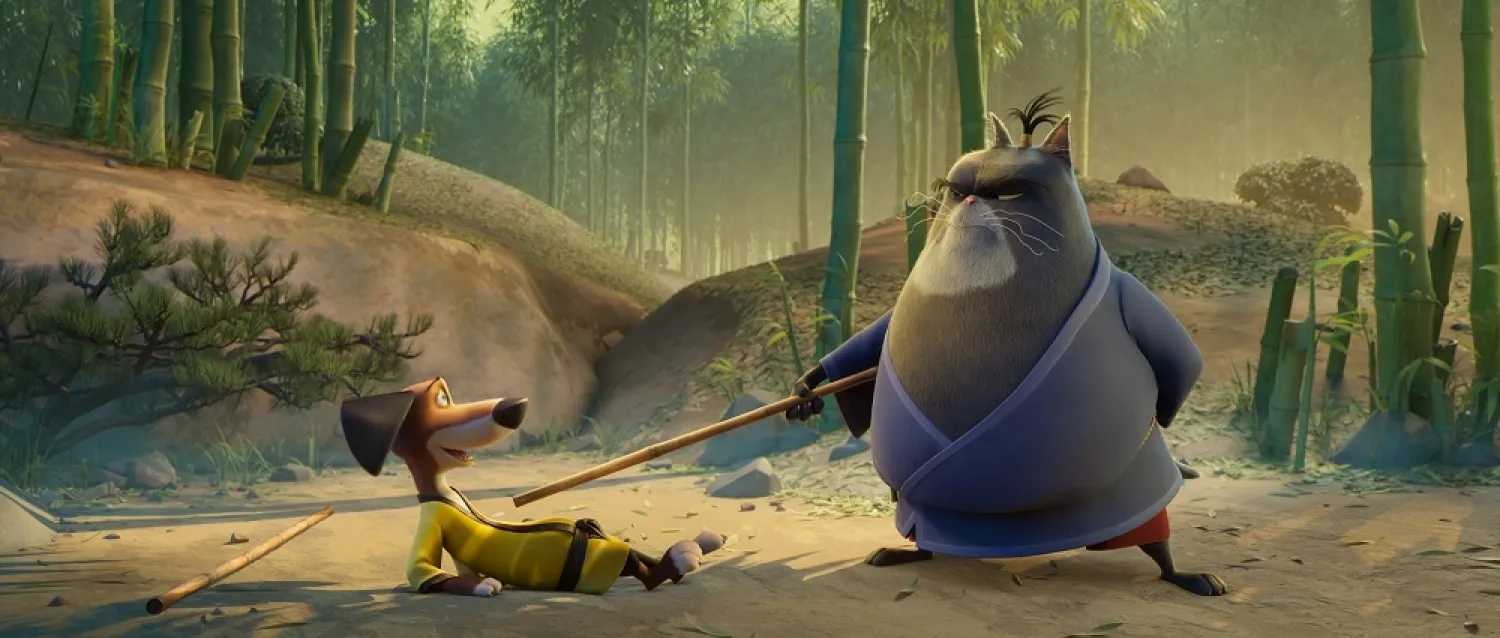Writer and director Mel Brooks’ 1974 Western spoof "Blazing Saddles" tackled racism so head-on that Brooks recently mused he wouldn’t be able to make the film today. Maybe, just maybe, he has done just that with "Paws of Fury: The Legend of Hank," but at a terrible cost.
Paramount's limp, animated remake actually triggers new stereotypes in the service of trying to expose racism for a pre-teen audience. The studio seems to have reached for legitimacy by bringing the venerated Brooks along for the bumpy ride, darkening both legacies.
What emerged sits uneasily at the corner of tribute, parody, theft and laziness. "Paws of Fury" follows Brooks' original playbook right down to a horse-punching moment and a group farting scene but doesn't capture his thrilling boundary-pushing vibe.
"Paws of Fury: The Legend of Hank" switches the setting from the original film's American West for an animated medieval Japan but is really of no time, and not in a good way. There is a timid, punning humor, as when a character announces "There’s no business like shogun business."
This is a Japan with cherry blossoms and origami and also dance clubs with VIP sections and house music. It has no real setting. The animators only a few times mix up the visuals, giving the film a predictable, big-eyed and overly violent look.
The screenplay by Ed Stone and Nate Hopper builds so much off "Blazing Saddles" that the original films' writers are credited, including Brooks, Norman Steinberg, Andrew Bergman, Richard Pryor and Alan Uger. For a while, the film was even titled "Blazing Samurai."
In both cases, an evil plan is hatched to send a rookie lawman to a town that instinctively hates him in hopes that townsfolk will scatter. In the film, it is a Black man in a racist town in the Old West. In "Paws of Fury," it's a dog in a community of dog-hating cats. Why Japan is natural for this setting is never convincingly made.
The put-upon pup Hank (voiced without distinction by Michael Cera) seeks a mentorship with a worn-out cat samurai (a perfectly cast Samuel L. Jackson) and the two begin a push-pull dance so familiar that Hank turns to his teacher and asks "Hey, this is the training montage, isn't it?"
That winking and fourth-wall breaking is a running joke, but it's not clear to what end. This is a film that borrows much of "Kung Fu Panda" and adds "Star Wars" references - "The cuteness is strong with this one" - and "Jurassic Park" gags, and sometimes has tone-deafness due to its long gestation, like this line: "Guns don’t kill cats. Cars and curiosity kill cats." That lands differently in summer 2022.
Many of the jokes - both traditional visual smacks and verbal joists - are dated and just not up to snuff. One dog gets hit in the face by a Japanese pot and that's called "woking the dog," "NWA" stands for "ninjas with attitude" and twice this gag is offered: "In case of emergency, break paper."
Ricky Gervais is excellent as a scheming noble cat, George Takei gets to offer his trademark catchphrase "Oh, myyy" twice and Brooks voices the shogun with his rat-a-tat one-liners. One recurring bit simply doesn't work - a big toilet joke - but the filmmakers return to it again and again.
Eventually, Hank proves himself a warrior, and the dog-hating cat town embraces their canine protector. "Go back where you came from" is exchanged for "We can all be better together." But as important as that lesson is, this is a poor vehicle to send it.









